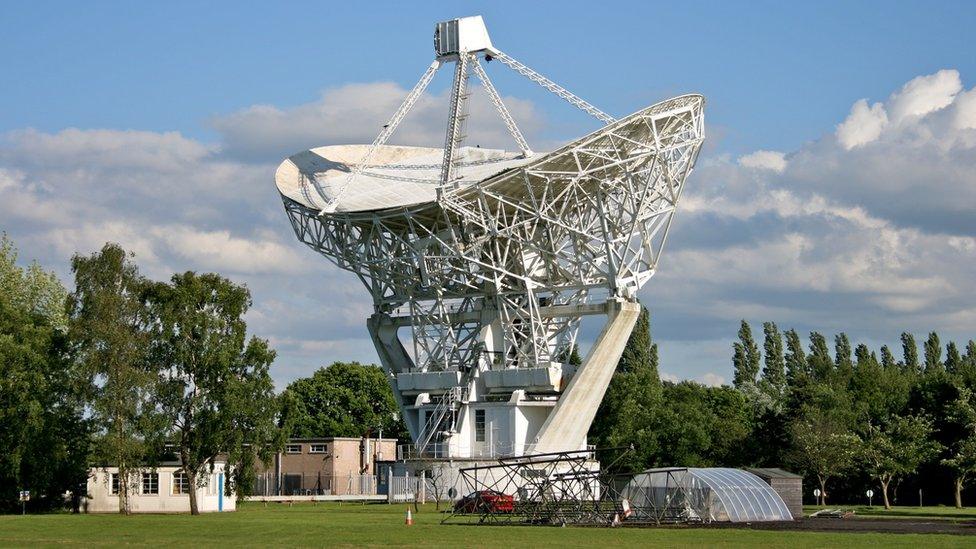Jodrell Bank Observatory 'switched on' after longest shutdown
- Published
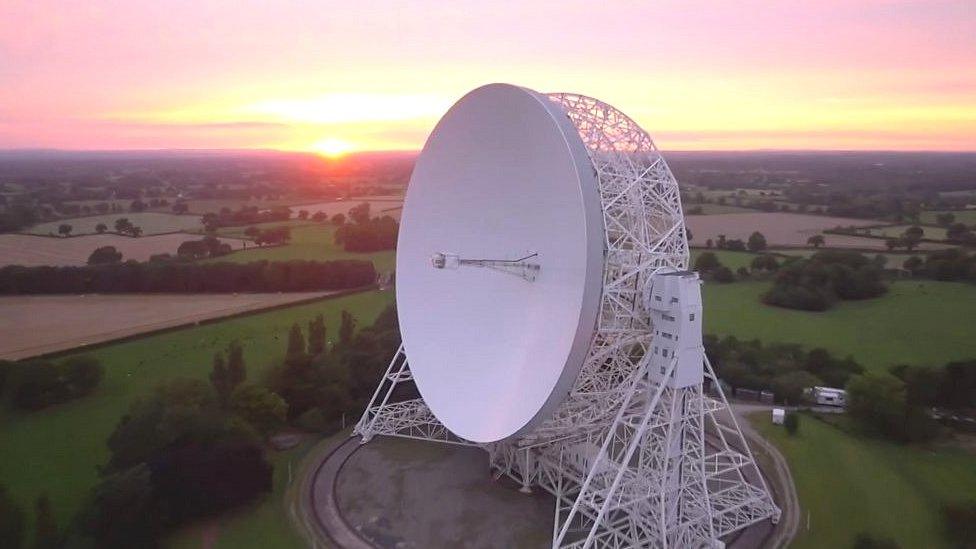
The Lovell Telescope forms the centrepiece of the Jodrell Bank site
The Jodrell Bank Observatory is being "switched back on" after the longest shutdown in its history.
The first set of telescopes have resumed operations at the Cheshire site after it was closed due to the coronavirus pandemic, said a spokesman.
During lockdown, staffing at the University of Manchester facility was cut from about 60 to a "skeleton crew".
Scientists have dubbed the switch-on the biggest "reboot" in the history of astrophysics.
Research, including a study into how planets form around stars, has continued at home since on-site research ended on 17 March.
The world famous site will remain closed to visitors until the government changes its guidelines on visiting public places such as museums, said a spokesman.
'Positive signal'
Jodrell Bank, which opened in 1957, is known as the birthplace of radio astronomy and is one of the earliest radio telescopes in the world.
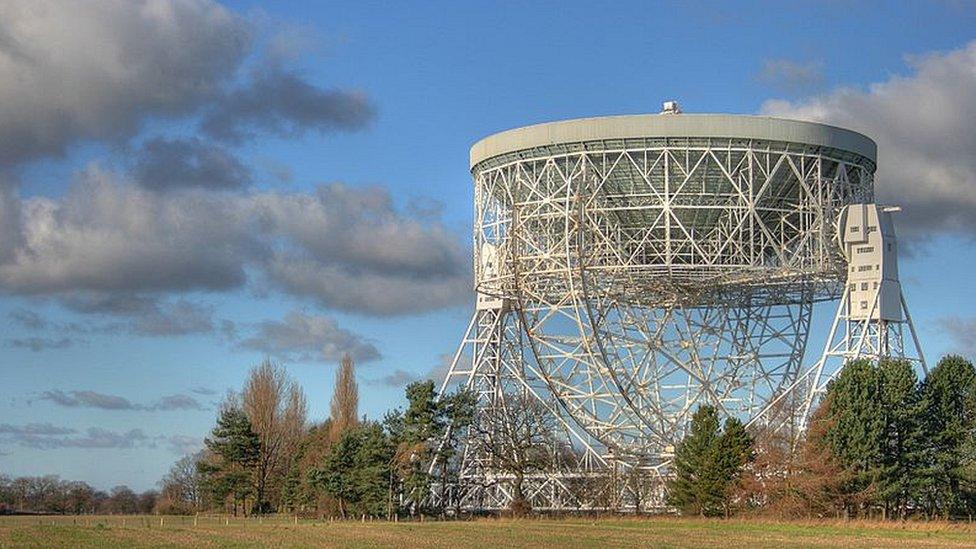
Jodrell Bank in Cheshire is regarded as the birthplace of radio astronomy
According to the university, the Mark II telescope is already working with the giant Lovell radio telescope set to become operational from the end of July.
Centre director, Professor Mike Garrett, said returning to pre-lockdown status will be a "complex and phased process".
"Getting Jodrell back into operation after such a long shutdown is a really positive signal to the international science community as a whole."
Part of that post-lockdown strategy is restarting the eMerlin programme, an array of seven radio telescopes across the UK with its headquarters at Jodrell Bank.
BBC Science Correspondent Jonathan Amos said: "Seeing the eMerlin network up and running again is a key infrastructure development. In terms of indigenous capability, it is the UK's 'biggest telescope'."
The Jodrell Bank site, famous for its iconic telescope named after Sir Bernard Lovell, began scientific research in 1945 when the physicist used radio waves - rather than visible light - to understand the universe.
It was added to the Unesco World Heritage List in 2019.
- Published20 July 2019
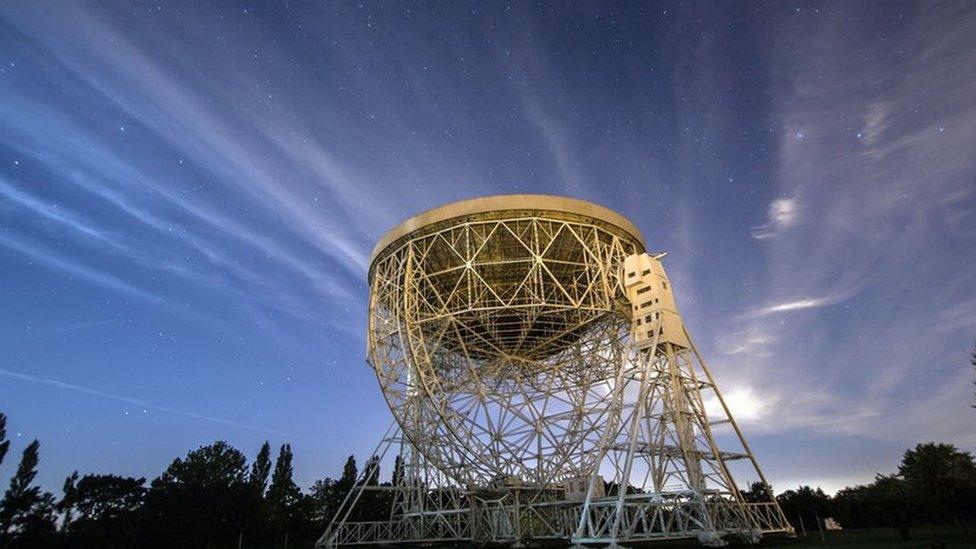
- Published7 July 2019
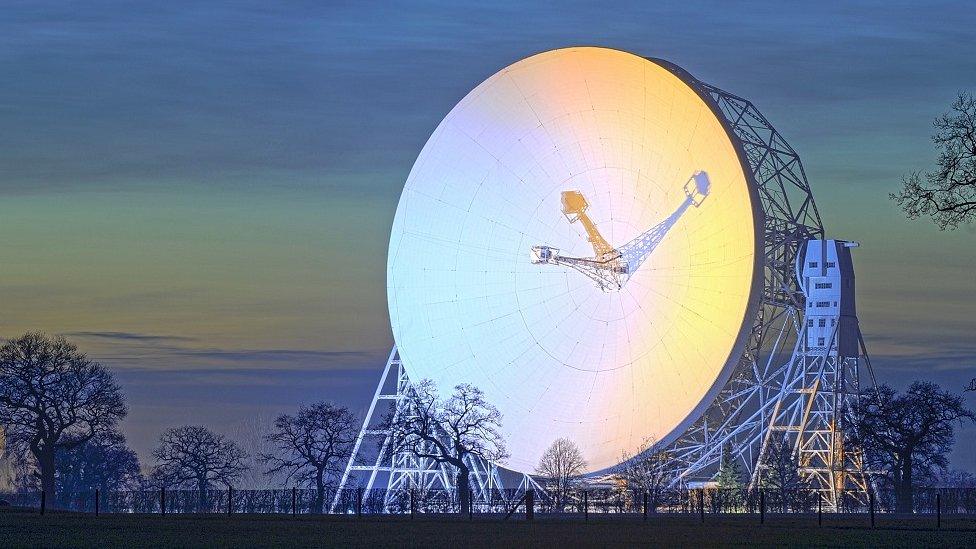
- Published2 August 2017
